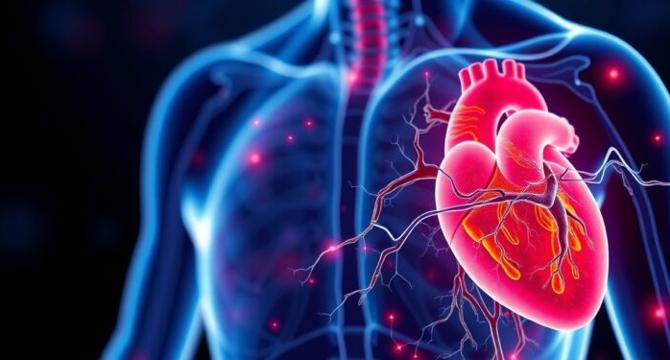Bioengineer
2d
35

Image Credit: Bioengineer
Holistic Approaches to Combat Radiation-Induced Restrictive Cardiomyopathy
- Radiation therapy poses a risk of radiation-induced cardiomyopathy (RIC) as the heart is exposed during treatment of chest malignancies.
- Advanced radiation therapy techniques like IMRT and proton therapy aim to reduce cardiac exposure and enhance patient safety.
- Additional protective measures such as MLC and patient positioning help minimize heart radiation dose during therapy.
- Post-therapy cardiac screening is essential for early detection of cardiovascular issues and timely intervention.
- Oxidative stress induced by radiation plays a role in RIC; antioxidant interventions like statins are explored for cardioprotection.
- Herbal supplements with antioxidant properties are being studied as potential defenses against radiation-induced oxidative damage.
- Researchers emphasize proactive cardiac evaluation and prompt treatment initiation to improve patient outcomes post-therapy.
- Innovative management strategies are crucial in addressing the evolving landscape of cancer treatment and RIC prevention.
- Collaboration among oncologists, cardiologists, and researchers is vital for understanding and managing RIC effectively.
- Emphasis on systemic monitoring and timely response to cardiovascular issues in cancer survivors can shape the future of radiotherapy.
Read Full Article
2 Likes
For uninterrupted reading, download the app